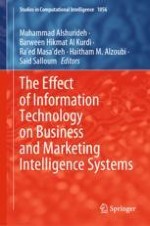2023 | OriginalPaper | Chapter
Evaluation of Blended E-learning from the Perspectives of the German Jordanian University Students
Author : Safa Shweihat
Published in: The Effect of Information Technology on Business and Marketing Intelligence Systems
Publisher: Springer International Publishing
Activate our intelligent search to find suitable subject content or patents.
Select sections of text to find matching patents with Artificial Intelligence. powered by
Select sections of text to find additional relevant content using AI-assisted search. powered by
